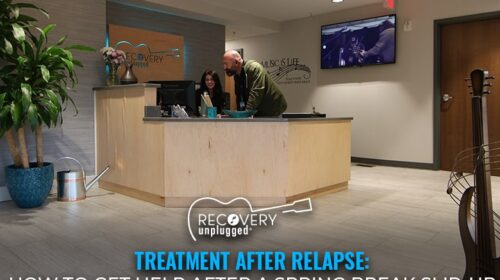Key Points:
- Drug abuse and addiction has been portrayed and glorified in film for over 100 years. This poses a challenge for our society when faced with the tragic truth in real life.
- In some cases, the media also has shown the human side of substance suffering, igniting greater compassion for our fellow man.
- Substance use and abuse is not a trivial matter but a serious mental health disorder that requires intensive treatment and person-first support.
Addiction on the Screen
Drug abuse has been shown on Hollywood’s silver screen for over 100 years. In the silent film era (1890s-1920s), cocaine use was as rampant on the screen as off the screen. Many famous personalities in that era struggled with addiction.
The list of popular movie actors who have died from a drug overdose in the last 100 years is tragically long. Some modern actors whose deaths were overdose-related include Heath Ledger, Whitney Houston, Bruce Lee, Joan Rivers, Chris Farley, Philip Seymour Hoffman, and many more.
Drug abuse usually happens in the margins of society and does not make for polite table talk. When we see drug use in TV shows and movies, audiences have a visceral reaction.
People will squirm in their seats and experience discomfort when they see something that is usually so hidden being portrayed so plainly. Rather than stigmatizing people suffering from addiction as morally misguided or lacking resolve, modern movies have framed addiction sufferers as real human beings worthy of our sympathy despite their choices.
Here’s our take on several powerful movies and TV shows that are a testament to the multifaceted nature of addiction:
Must Watch Movies
Requiem For A Dream – 2000
This movie is probably the strongest, most brutal anti-drug movie ever produced. When it premiered in 2000, people were passing out at the theaters, much like when “The Exorcist” premiered back in 1973.
The movie follows two characters who descend deeper into the abyss of addiction as the movie progresses. It’s a slow-motion trainwreck that is hard to look away from and is even harder to forget.
Some of the most unforgettable scenes include when Jared Leto’s character forces a needle into an already-gangrenous arm which later gets amputated. If you didn’t already know getting addicted to heroin was a bad idea, this film will thoroughly disillusion you with such a notion.
It’s hard to articulate a compelling reason to watch this cinematic piece, as most of us already agree with the premise (heroin is bad for your mental and physical health) before we start watching. But, once you watch it, you will never forget it and you’ll have greater compassion for substance use disorder sufferers.
Beautiful Boy – 2018
This poignant film based on a true story stars Steve Carell as a caring father who is trying desperately to connect with his son, who is abusing drugs. The sense of failure each feels throughout the movie heightens the suspense and allows for a thorough exploration of both fatherhood and addiction.
Unhealthy family dynamics are often a risk factor for addiction. But unfortunately, addiction can even occur in families with healthy dynamics. This film provides a very nuanced portrayal of the trauma experienced by families during addiction.
The real-life inspiration was the father/son relationship between journalist David Sheff and his son Nicholas Sheff. The real Nicholas Sheff almost died in real life from his addictions. Now, due to a combination of pharmacotherapy, a psychiatrist, and 12-step programs, he has been sober for over a decade. Watch this for a tear-jerking but heartwarming take on addiction meets family dynamics.
The Panic in Needle Park – 1971
In Al Pacino’s first serious role, this movie centers on a young homeless couple who become codependent on each other as their shared drug habits intensify.
Romantic relationships are often a serious risk factor for drug abuse or relapse. Romantic partners are the person we are most affected by due to our close emotional and physical relationship. If a romantic partner is either addicted to drugs themselves or exhibits triggering behavior (e.g., verbal abuse, depression, etc.), it can cause their partner to relapse.
The characters in “Panic in Needle Park,” like many drug users, slowly descend into the depths of drug use. While Helen enters the relationship not using drugs, she is a full-fledged heroin user who has turned to prostitution to support her habit by the end.
Incredibly, by the end of the movie, after Bobby is released from jail, their relationship endures. This is perhaps the most unbelievable aspect of the movie, as few healthy relationships ever survive co-occurring drug use without sending the other into relapse.
While it’s definitely an addiction story involving love with a couple of jokes thrown in, it would not be responsible to call it a rom-com. Watch this for a powerful reminder of why not to do drugs.
Must Watch TV Shows
Breaking Bad – 2008-2022
The most critically acclaimed TV series of all time, Breaking Bad, follows a disheartened high school chemistry teacher (Walter White) who was recently diagnosed with stage III lung cancer.
Without much money to pay for treatment, he turns to a former student to help him distribute his high-grade meth. The entire saga concludes two years after his diagnosis with a violent death.
There are five seasons, a prequel that spans six seasons, and a movie. The lead character Walter White had grown so dark and morally bankrupt that the director was relieved to kill him off in the end.
Like Walter White’s decline, the motives that begin addictions are fluid and can change over time. In due time, the motives that sustained the current addiction will likely be different from those that began it.
Watch this for a masterclass in both acting and directing, with addiction as a ubiquitous backdrop.
Euphoria – 2019-2022
HBO’s controversial depiction of teen substance abuse, violence, and mental health struggles has had far-reaching effects on viewers and actors alike. The response has been varied, but it gets a few things right along the way.
Zendaya, who fills the starring role, masterfully exposes the ugly and damaging underbelly of substance use as you watch a young girl navigate grief and addiction. Tragically, after the series wrapped season 2, the cast also mourned the loss of one of their own, Angus Cloud, who played Fezco, in a drug-related death occurring in July of 2023.
While some argue the show overly glorified teen drug use, others say it revealed the truth about the state of substance abuse among American teens. The numbers are indeed holding steady or below pre-pandemic numbers, but the truth is, it’s still far too high, and Euphoria reveals why.[1] If you were to watch this series, it would be to have your eyes opened to the bitter realities of young people and drug use, but (spoiler alert) don’t miss the theme of hope that closes out season two.
The Trade – 2018
This raw docu-series is a non-fiction TV series about the drug trade. Rather than a fictional storyline re-enacted by paid actors, the characters in this show are real people for whom the problem of drug abuse is both real, urgent, and palpable.
Spanning continents, “The Trade” explores every angle of the drug trade, from the people who harvest, process, and distribute the drug, to the law enforcement agencies tasked with halting the flow of the drugs into the country and inside communities, to the people using, abusing, and overdosing on the drugs.
It’s hard to watch a complex problem play out so powerlessly on the screen.
It almost feels like cinema in that everybody is doing their part but is also acting against the interests of others in the show. You grow to sympathize with characters who are actively antagonizing each other. It’s hard to watch, but then again, it’s real.
Watch this for information about the dynamics of the international drug trade, but also a humanizing look at the people involved.
If You or A Loved One Need Substance Use Help, Start Here
Don’t walk this long road alone. Get the support you need and reach out for help today.
Sources
- [1]U.S. Department of Health and Human Services. (2022b, December 15). Most reported substance use among adolescents held steady in 2022. National Institutes of Health. https://nida.nih.gov/news-events/news-releases/2022/12/most-reported-substance-use-among-adolescents-held-steady-in-2022

























